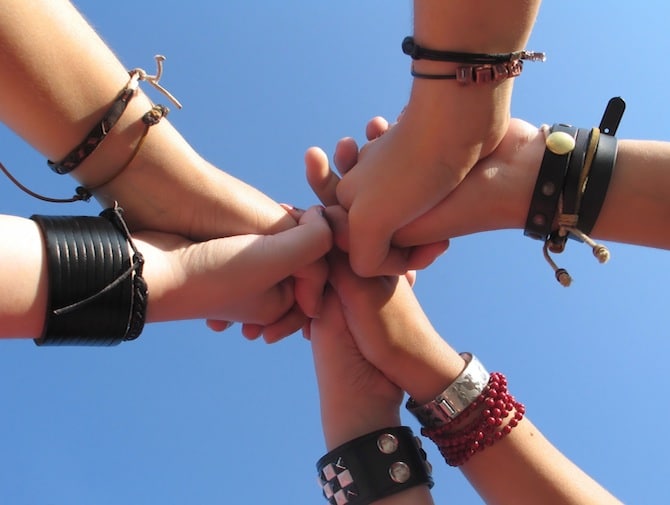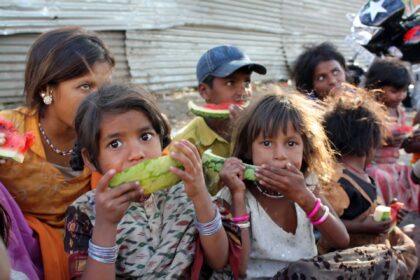
That’s great – honesty is the best place to start – without honesty there are so many pitfalls – so many mistakes that well-meaning volunteers can make.
My organization, People & Places, has been campaigning for better volunteer experiences for volunteers and the communities they seek to serve for over eight years. I would like to share some of the areas where we think honesty would make those mistakes less likely.
Finding An Honest Sending Organization
Mistake – Not asking questions
Many organizations that recruit volunteers now list questions volunteers should ask — and please volunteers, ask them. The problem is – how do we know the answers are honest? Beware of smoke and mirrors. The answer to “where does the money go?” is easily whitewashed by allocating a whole load of costs to “project development” – but what does that actually mean? It’s all too easy to allocate the organization’s travel expenses to project development – is the well paid chief exec’s whole salary allocated to project development? The important question to ask is where is the money spent?
Likewise – just what does “community driven” mean? As volunteers, we would like to think it means that the community know who we are before we arrive, have decided we will be of use to them and have given their permission for us to live and work with them. To be honest, though, all too often the community does not know who we are until the day we turn up – all they know is that a large sending organization has signed an agreement with them that they will send a certain number of volunteers per year to them. The important question to ask is:
who decides what work I will be doing and what will we know about each other before I arrive?
Ethical organizations will have processes in place to monitor the ongoing — and changing — needs of the project. If an organization does not ask you some pretty searching questions about your skills, experience, strengths and weaknesses — and cannot tell you which project you will be working with and what you will be doing — do you honestly think it will be a meaningful experience for you or the community ?
Take a look at some questions you should ask – and some guidelines as to the sort of answers you should be getting — by clicking here.
Being Honest And About When Could Do More Harm Than Good
Mistake –not fully researching the issues
Many volunteers have an honest desire to work with children, whether in schools or orphanages. But unskilled volunteers caring for orphans — or indeed teaching — can often do more harm than good. There is a lot of information about the ethics of orphanage volunteering available online – this link details the problems well.
The problems with unskilled teaching volunteers is less well documented, but there is plenty of anecdotal evidence of schools not recruiting local teachers because they are promised a stream of volunteers who will “teach.” There are two problems with this. One, replacing local employment, and two, poor teaching standards. The vast majority of these volunteers have never stood in front of a class of children in their own country, never mind one in a completely different culture with very different curricula.
So, an honest question would be: If I would NOT be allowed to do this in my own country, why should I be allowed to do it in someone else’s?

Honestly, Please Don’t Take Or Send “Stuff”
Mistake – believing whatever we can give is better than nothing
Let’s face it, luggage allowances are low and if you are going for a month or so you will need the whole of the allowance for yourself. Please do not be tempted to take things with you for your project unless you have been advised to do so by the project or placement organization. In many instances the “stuff” can be purchased locally for at least the same price if not lower – not to mention by buying locally you are adding to local wealth.
Also, there are a few questions one should ask. Is it sustainable? Will the project be able to repair it or replace it when you are gone? So often we hear that perhaps a battery driven appliance would be a good idea if the project has no electricity (hmmmmm but who’s paying for the batteries?). Do they have the skills to use it? Is it culturally appropriate?
Nearly all countries you are likely to volunteer in do not have good postal services – if you post something it is very likely to get “lost.” At best it will arrive with local customs … but the project will not be able to afford to get it released! Again, responsible organizations will be able to advise you on the best way to continue to support your project, if that’s what you wish to do.
Being Honest About Our Limitations
Mistake – feeling we must do more
Our advice to our volunteers — who are usually highly skilled professionals — is to think about what you intend to achieve, then cut that in half, cut that in half again and then reduce it by 50%. Remember, your reality is not necessarily the reality of the project you will be working with. You have skills, but just about without exception you do not have more skills than local people just different skills from local people – and many of your skills, in all honesty, are not relevant skills in that environment.
Try to be absolutely honest with the community you will work with about what you can and cannot do, as it’s easy for misunderstandings to arise. When you think you have said “I will try to do that” local people may well have heard “I promise I will do that.” You can imagine the distress this can cause. Remember the goals that were set for you — if you traveled with a responsible organization then you should have been given some goals. Don’t try to do too much too soon – watch and listen first. Be gentle with yourself and with local people.

Being Honest When We Have A Problem
Mistake – “I don’t want to cause any trouble”
Talk to someone as soon as a problem arises. It will be a very unusual volunteer placement that does not result in at least one problem – all too often volunteers do not draw this to anyone’s attention at the time – probably because they are uncomfortable and don’t wish to “create a fuss.” If you have traveled with a responsible organization, there will be someone local you can discuss your concerns with who you are not working with each day. Don’t let an issue that could be resolved spoil the experience for you and the people you seek to serve.
If you are unlucky enough to have had a bad experience and the sending organization has not listened to you, write to them with an honest critique. Also make sure to share that critique publicly, as your honesty will prevent others from having the same experience.
Final Words Of Wisdom
- I believe strongly that well matched and well prepared volunteers can do, and do amazing work
- I believe that ‘skills’ do not have to be professional skills – life skills are just as useful. For instance, the work a school caretaker did – he happened to be a bike enthusiast — with one of the projects we work with is a whole other glorious story.
- I believe volunteering is one of the most worthwhile experiences any of us can have.
- I believe — with honesty – that volunteer travel can be a human bridge between cultures where we can glory in our differences and our shared humanity.
About The Author
Sallie Grayson is the Co-Founder and Program Director of People & Places, a responsible volunteer travel organization focused on placing voluntourists with sustainable and ethical projects, as well as helping disseminate information on responsible voluntourism.
Jessica Festa
Latest posts by Jessica Festa (see all)
- A Culturally-Immersive Adventure In Mongolia’s Altai Mountains - Jul 8, 2023
- This Recipe Sharing Platform Supports Women In The Culinary Industry (Labneh Recipe Included!) - Nov 5, 2020
- Hiking The Mohare Danda Community Eco-Trek In Nepal - Jun 3, 2020
- 6 Important Questions For Choosing A Responsible Yoga Retreat - May 18, 2020
- How To Create & Grow A Profitable Blogging Business (Ethically) - Jan 18, 2020






I am 68 years old and have made 15 volunteer since 1998. Most problems that I see are young girls getting involved with the Local Men and getting Raped or Mugged. Or Young guys having too much Alcohol or getting into Drugs. WAKE UP YOU ARE NOT IN AMERICA WHERE YOUR MOMMY CAN COME TO YOUR AID. Do not go to Protest marches or Political Rally’s. These events are Dangerous. do not go out alone or down the “Back Alleys. Stay with your Group and Stay Safe”…
@Dewey: Thanks for sharing your experience and advice. I’d even add that in America it can be dangerous and people need to stay aware. I live in Brooklyn and carry a personal alarm and my apartment keys laced through my fingers like brass knuckles when I’m walking alone at night.
I would suggest that a volunteer – and indeed any traveller, must take the advice of the local team they are working with – about what and where are and are not safe. Any responsible volunteer organisation will have robust safety policies and briefings in place and the safety of the volunteer and their hosts will be their priority.